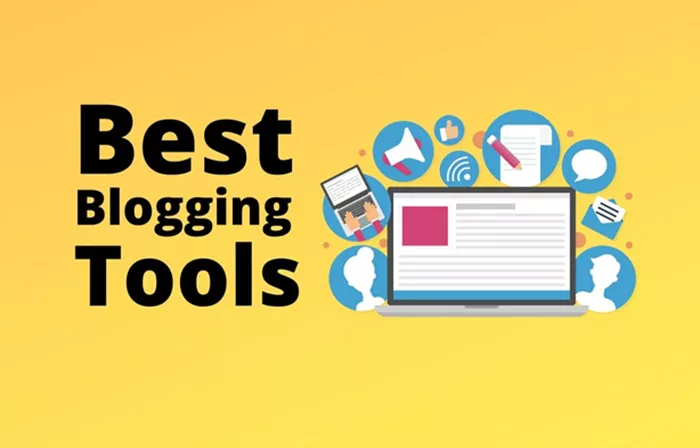Creating high-quality blog content requires more than just great ideas. You need the right tools to streamline your workflow, enhance your creativity, and optimize your content for engagement. Whether you’re a beginner or an experienced blogger, the right set of tools can help you research, write, edit, design, and promote your content effectively. Here are the top 20 blogging tools that can significantly enhance your content creation process.
20 Must-Have Blogging Tools to Supercharge Your Content Creation
1. Grammarly
Grammarly is an AI-powered writing assistant that helps bloggers ensure their content is grammatically correct and free from spelling errors. It also offers style suggestions, readability improvements, and plagiarism detection to enhance the quality of writing.
2. Hemingway Editor
Hemingway Editor simplifies complex sentences, highlights passive voice usage, and improves overall readability. It is a great tool for bloggers who want to create concise and engaging content.
3. Google Docs
Google Docs is a cloud-based word processor that allows bloggers to write, edit, and collaborate in real-time. Its seamless integration with other Google tools makes it a preferred choice for content creation.
4. Evernote
Evernote is a note-taking tool that enables bloggers to organize ideas, create to-do lists, and store research materials. It supports multimedia notes, including images, voice recordings, and web clippings.
5. Trello
Trello is a project management tool that helps bloggers plan and organize content calendars. With its drag-and-drop functionality, users can track writing progress, assign tasks, and set deadlines efficiently.
6. WordPress
WordPress is the most popular blogging platform, offering flexibility and a wide range of plugins. It allows bloggers to create, edit, and publish content with ease while optimizing for SEO.
7. Yoast SEO
Yoast SEO is a WordPress plugin that helps bloggers optimize content for search engines. It provides readability scores, keyword analysis, and suggestions for improving on-page SEO.
8. Ahrefs
Ahrefs is a powerful SEO tool that provides keyword research, backlink analysis, and content insights. Bloggers use Ahrefs to find high-ranking keywords and analyze competitors’ strategies.
9. SEMrush
SEMrush is another SEO tool that offers keyword research, content analysis, and competitive insights. It also provides a content optimization tool to improve search engine rankings.
10. BuzzSumo
BuzzSumo helps bloggers find trending topics and analyze the most shared content in their niche. It also identifies key influencers who can help amplify blog posts.
11. Canva
Canva is an easy-to-use graphic design tool that allows bloggers to create visually appealing blog images, infographics, and social media posts without requiring advanced design skills.
12. Adobe Spark
Adobe Spark is another graphic design tool that helps bloggers create professional-quality visuals, animations, and videos to enhance their blog content.
13. Pexels
Pexels provides high-quality, royalty-free stock images that bloggers can use to enhance their articles. It is an essential resource for visually enriching blog posts.
14. Unsplash
Unsplash is another free stock photo website offering a vast collection of high-resolution images suitable for blogs, social media, and websites.
15. Google Analytics
Google Analytics helps bloggers track website traffic, analyze audience behavior, and measure content performance. It provides essential data to improve engagement and conversions.
16. CoSchedule Headline Analyzer
This tool helps bloggers craft compelling headlines by analyzing word balance, length, sentiment, and readability. A strong headline is crucial for increasing click-through rates.
17. Trello
Trello helps bloggers manage content calendars, track writing progress, and organize tasks efficiently. It is especially useful for bloggers working with teams.
18. ConvertKit
ConvertKit is an email marketing tool designed for bloggers and content creators. It allows bloggers to build and nurture email lists, create automated email sequences, and engage with their audience effectively.
19. Mailchimp
Mailchimp is another popular email marketing tool that enables bloggers to create and manage email campaigns, track subscriber behavior, and automate marketing efforts.
20. Buffer
Buffer is a social media management tool that allows bloggers to schedule and publish posts across multiple platforms. It helps maintain a consistent online presence and boosts blog traffic.
Conclusion
Choosing the right tools for blogging can significantly improve your content creation process, from research and writing to design and promotion. These 20 tools can help streamline your workflow, optimize your content for search engines, and enhance audience engagement. By integrating them into your blogging strategy, you can create high-quality, engaging, and well-optimized content that stands out in a competitive digital landscape.
Related Topics
- How to Direct Traffic to Your Blog Effectively?
- How to Optimize Blog Writing for SEO?
- How to Set Up Blogger for Beginners?

